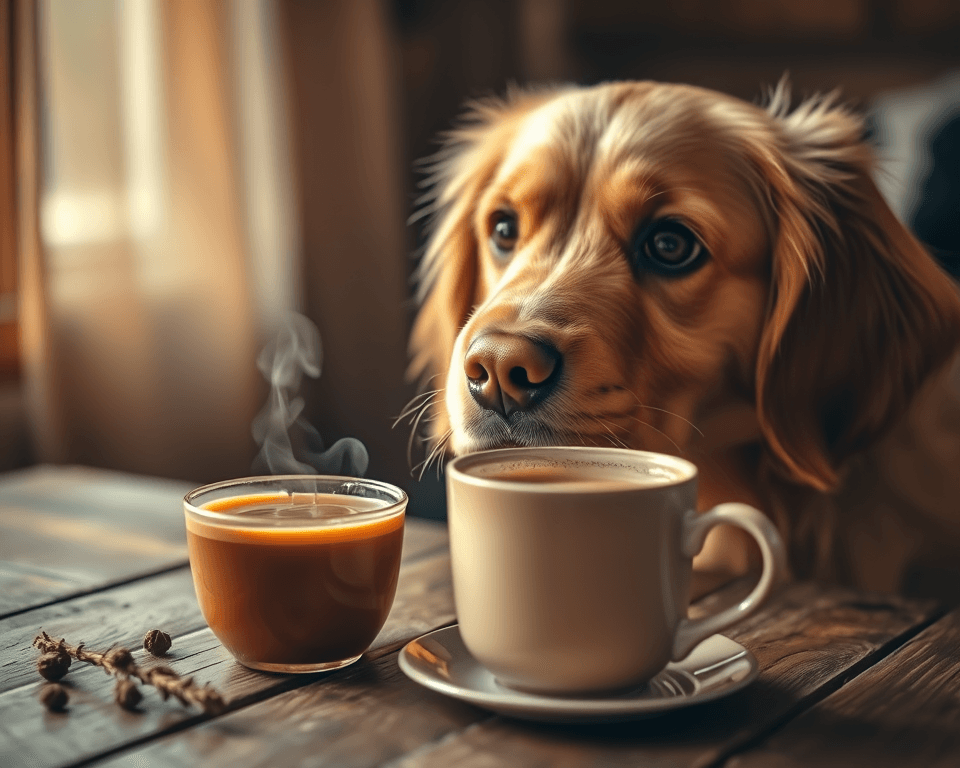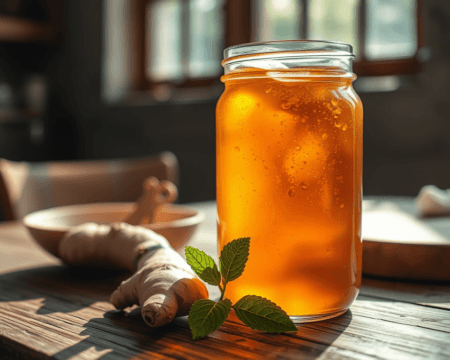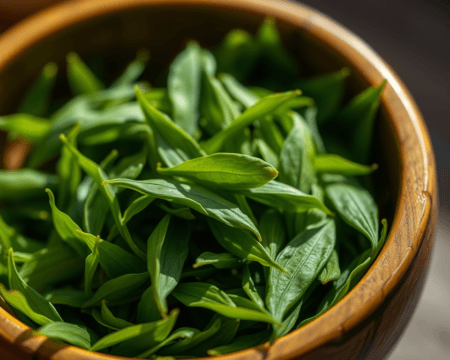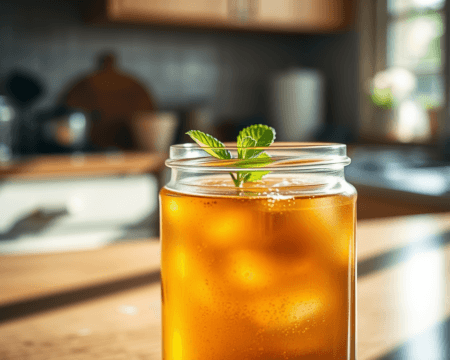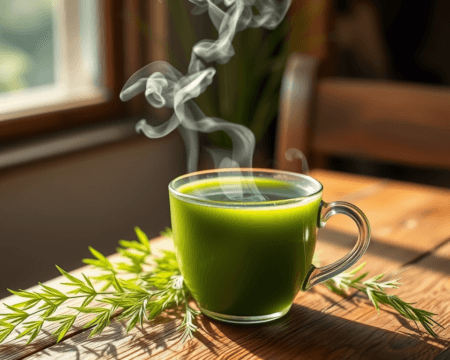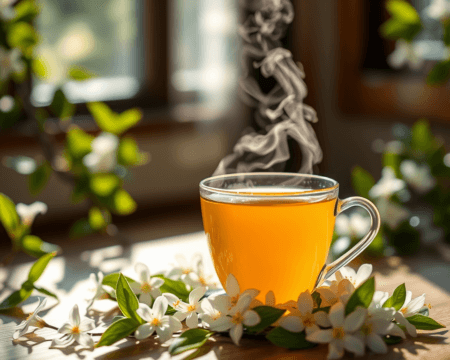You’re sitting down, savoring that aromatic cup of chai tea, the warm spices wafting through the air, when you catch your pup eyeing you longingly. That sweet, curious face makes you wonder—can dogs have chai tea? It sounds like a harmless treat, especially considering all the cozy vibes associated with chai. Let’s break it down. You’ll want to know what’s in that cup and the potential pitfalls for your furry friend.
Key Takeaways
- Most chai tea ingredients aren’t safe for dogs due to caffeine, sugars, and certain spices.
- Caffeine can be toxic to dogs, leading to serious health issues if ingested.
- Dairy in chai can be problematic for dogs with lactose intolerance or allergies.
- Opt for dog-friendly drink alternatives instead of risking your pup’s health.
Overview of Chai Tea and Its Ingredients
What is Chai Tea?
Chai tea is that heartwarming, spiced concoction that’s become a staple in many households. Originating from India, this beverage blends black tea, spices, milk, and sometimes sweeteners for a rich, warming experience. The traditional ingredients vary widely, but you can find a mix of spices like cardamom, ginger, cloves, and cinnamon showcasing all kinds of flavors.
There are countless chai variations—from Masala chai, made with bold spices, to creamy versions that take the edge off the tea’s bite. Each recipe boasts a unique twist, often passed down through generations. You might also whip up a chai latte at your local coffee shop or try some gourmet chai blends—you name it, there’s probably a chai for it!
Common Ingredients in Chai Tea
Let’s get to the nitty-gritty—the key components that make up that chai. At its base, you’ll find:
- Black Tea: It provides a robust flavor and caffeine punch.
- Milk: This adds creaminess, balancing out the spices.
- Sugar: Most recipes call for sweeteners, which can elevate the overall taste.
- Spices: Classic spices include cardamom, ginger, cloves, and cinnamon, all of which are loaded with health benefits.
Now, while chai tea is delicious for us, how do those ingredients stack up against our dogs’ biological makeup?
Are the Ingredients Safe for Dogs?
Caffeine and Its Effects on Dogs
Here’s the kicker: caffeine and pets don’t mix. Just one cup of chai tea can have a substantial amount of caffeine, especially depending on how strong it is brewed. If you’re curious about the implications, caffeinated drinks can lead to caffeine toxicity in dogs. Their systems aren’t equipped to handle it like ours. When dogs consume caffeine, signs of overdose can manifest as restlessness, rapid breathing, muscle tremors, or even heart palpitations.
To put it simply, caffeine can be a ticking time bomb for your pup’s health. Just because we enjoy that energized feeling, doesn’t mean our furry companions can handle it. So, if you’re considering sharing your chai with your dog, think again—it’s best to avoid any caffeine sources altogether.
Other Ingredients and Their Potential Risks
Let’s not stop there. Dairy is another tricky ingredient. Many dogs are lactose intolerant, leading to tummy troubles if they eat dairy products. If your chai has milk, it might be a recipe for disaster.
And don’t get me started on sugar. Regular sugar can be harmful to dogs, leading to various health issues, including obesity and dental problems. Some sweeteners, like xylitol, can be downright deadly. The spices, while tasty for us, also don’t all have the same safety profile for our canine buddies. For instance, nutmeg can be toxic in large doses.
A quick summary of these common chai ingredients:
| Ingredient | Dog Safety |
|---|---|
| Black Tea | High caffeine = no-go |
| Milk | Risk of lactose intolerance |
| Sugar | Negative effects on health |
| Spices (e.g., cardamom, cloves) | Some can be harmful |
Common Misconceptions About Chai Tea and Dogs
Understanding Caffeine Myths
You might have heard it before—“A little caffeine won’t hurt!” But let’s set the record straight. The caffeine myths circulating around dogs can lead to serious misunderstandings about what’s okay to give them. The truth is, there’s no such thing as a safe caffeine limit for dogs. It’s just not worth it when it can put their health at risk. Ignorance about caffeine effects can have dire consequences for your pup. Instead, stick to water or other caffeine-free alternatives.
The Truth About Herbal Teas
Here’s another hot take—herbal teas aren’t always dog-friendly either. While some herbs provide benefits, others can be harmful. For instance, chamomile tea can be calming, but not every herb you might find in your local tea shop is safe for your furry friend. Consulting with a vet is crucial before introducing any new herbal remedy.
Have you ever thought about how many misconceptions are out there regarding dogs and herbal or spiced drinks? It’s critical to always do your homework rather than trust the latest fad thinking it might be beneficial. Just because something’s natural doesn’t mean it’s safe for your dog.
Alternatives to Chai Tea for Your Dog
Dog-friendly Drink Options
Seeing your fluffy pal gaze at your chai with those puppy dog eyes is tough, but it’s essential to steer clear of letting them indulge in anything unsafe. Instead, consider some dog-safe drink alternatives.
- Bone Broth is a fantastic option! It’s nutritious, hydrating, and most dogs absolutely love the flavor.
- Paw-sitive Herbal Teas such as peppermint or chamomile can provide soothing properties if you’re mindful of the ingredients.
- Water—yes, it’s that simple! Keeping your dog hydrated is essential, and water is the best and safest option.
When you’re whipping up dog treats, consider making homemade dog beverages with ingredients like pumpkin puree mixed with water or ice cubes for a refreshing summer delight. Keeping your dog’s nutritional needs in mind can lead to healthier decisions down the line.
Veterinary Recommendations on Canine Nutrition
Always chat with your veterinarian whenever you’re considering tweaking your dog’s diet. They can provide you with the best insight into what’s safe and nutritious for your furry friend. Questions like, “Can I give my dog this?” or “What do you think about this recipe?” can lead to invaluable advice. Remember, your vet is not just a doctor; they’re your best resource for keeping your dog healthy and happy.
In a world of trendy drink choices, the health of your dog is what should come first. Take their dietary needs seriously, and you won’t regret it. They’ll be wagging their tails in gratitude!
Frequently Asked Questions
Can dogs drink chai tea safely?
No, dogs should not drink chai tea safely due to its caffeine content, which can be toxic, as well as added sugars and spices that may harm their health.
What symptoms should I watch for if my dog ingests chai tea?
If your dog consumes chai tea, watch for symptoms like restlessness, rapid heart rate, vomiting, and muscle tremors, which can indicate caffeine toxicity. Consult a veterinarian if you notice any concerning signs.
Are there any spices in chai that are especially harmful to dogs?
Certain spices in chai, such as nutmeg, can be harmful to dogs. Nutmeg contains a compound called myristicin, which can cause disorientation and digestive issues. Always consult a vet about specific spices.
What are some dog-friendly alternatives to chai tea?
Consider offering your dog plain, unsweetened herbal teas like chamomile or specific broths made for dogs. These options can provide a soothing experience without the risks associated with chai tea.
Is it safe for dogs to have dairy products?
Many dogs are lactose intolerant, meaning they may experience digestive upset after consuming dairy. Always check with your veterinarian before giving your dog dairy products to ensure they can tolerate it.
How much caffeine is toxic to dogs?
The toxicity of caffeine in dogs varies by size and individual sensitivity, but even small amounts (approximately 20mg per kilogram of body weight) can lead to symptoms. It’s best to keep all caffeinated products away from dogs.
Can occasional exposure to caffeine be harmful to dogs?
Yes, even occasional exposure to caffeine can be harmful and may lead to serious health issues, including seizures or heart arrhythmias in some dogs. It’s crucial to avoid letting them consume any caffeine-containing products.
What should I do if my dog accidentally drinks chai tea?
If your dog accidentally ingests chai tea, monitor for any symptoms of toxicity and contact your veterinarian immediately for advice. Early intervention can be critical in preventing serious health problems.
Are there any safe herbs I can give my dog?
Yes, herbs like parsley and basil are generally safe in small amounts for dogs. Always research or consult your vet before introducing new herbs to your dog’s diet to avoid potential risks.




